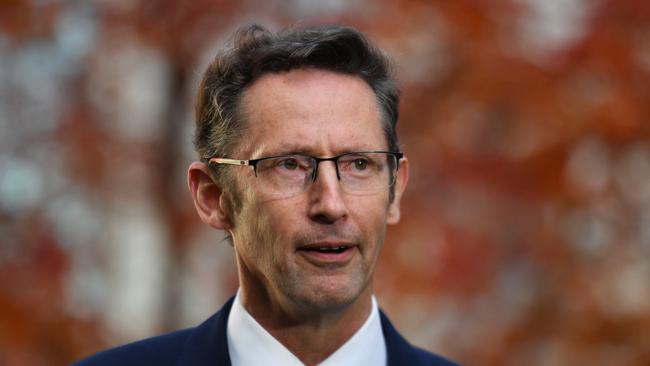Labor throws down superannuation gauntlet
Labor has threatened to use the Coalition’s proposed superannuation changes to cancel investments in companies that engage in wage theft or have a poor industrial relations record.

Federal Labor has threatened to use the Coalition’s proposed superannuation changes to cancel investments in companies that engage in wage theft or have a poor industrial relations record if the government gets the new powers passed by parliament and the ALP wins the next election.
Labor, unions, the Australian Industry Group and key crossbenchers are pushing for the government to remove provisions in the Your Future Your Super bill that allow the minister of the day to prohibit funds from making certain payments or investments.
Dubbed a “regulatory kill switch” by its opponents, the superannuation industry says the provisions allow the treasurer of the day to ban any superannuation fund investment or expenditure even if it’s in the best financial interest of members.
In a speech to be given on Wednesday, Labor financial services and superannuation spokesman Stephen Jones will say the “extraordinary and unprecedented directions-making power makes Josh Frydenberg Australia’s superannuation trustee-in-chief, allowing him to cancel any investment he does not like”.
“That’s kryptonite for investment certainty,” he will say, in a speech seen by The Australian.
“It creates the type of sovereign risk normally associated with tin-pot dictatorships.”
Mr Jones argues the power could be used to cancel wind farm investments or “conversely, in different hands, the kill switch could be used to cancel a coalmine”.
“Indeed, there is almost no end to the ways the kill switch could be deployed,” he will say.
Mr Jones will point out that when John Howard introduced Work Choices, he directed government procurement agencies to favour tenders from businesses that used individual enterprise agreements. “That set a precedent for how such directions can be used to advantage ideological ends,” he will say. “It is conceivable Labor would use the directions power currently being contemplated to advance our agenda.
“One option open to us would be to order the cancellation of investments in companies which have been found guilty of wage theft or consistently demonstrate a poor industrial relations record.”
Apart from the Ai Group raising concerns, he will say that the silence from the business lobby has been “deafening”.
“It will be difficult to take credibly any future claims from the business sector about sovereign risk if it allows the Treasurer to take control of $3 trillion worth of funds under management without so much as a whimper.”
Mr Jones will say the provisions should be removed from the bill but he insisted Labor’s aim “was to save the bill, not to sink it”.
Small business on Tuesday attacked the opposition from the Ai Group and the ACTU to the bill, claiming they represented a “disappointing partnership between vested interests from industry super funds who are afraid of transparency.
Council of Small Business Organisations Australia chief executive Peter Strong said businesses needed complexity removed from super to save jobs and encourage investment, not the cementing of convoluted processes.
Mr Strong said the position taken by the Ai Group was “very naive (given) it claims to represent small business”.
“Rather than undermining a good policy, COSBOA and its members are working with government to ensure the change process continues to be fit for purpose,” he said.
“It is obvious that these groups, who make money from their membership of industry superannuation funds, are afraid that the removal of complexity and the creation of transparency will mean less income for their organisations — even though workers and small business people will benefit.”




To join the conversation, please log in. Don't have an account? Register
Join the conversation, you are commenting as Logout